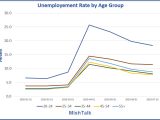Canada’s Largest Local Police Force Disproportionately Arrests and Kills Black People: Report
August 10, 2020Toronto police disproportionately arrest, charge, injure, and kill Black people, a report from Ontario Human Rights Commission has found.
The report, part of the commission’s inquiry into anti-Black racism within the force, is based on data from Toronto Police Service from 2013-2017.
It found that Black people, who make up 8.8 percent of Toronto’s population, were involved in approximately 25 percent of all Special Investigations Unit cases resulting in death, serious injury, or sex assault allegations, and nearly 40 percent of cases involving less severe use of force.
The report also found that Black people represented nearly 32 percent of all charges, while white and other non-Black people were underrepresented. It said charges against Black people are more likely to be dropped, raising “systemic concerns about charging practices.”
Nearly 40 percent of cannabis charges were against Black people, despite the fact that Black and white people consume weed at similar rates.
“The time for debate about whether anti-Black bias exists is over,” said Ena Chadha, interim chief commissioner of Ontario Human Rights Commission, in a news release. She called on Toronto police, the city, and the province to “take immediate action” to address systemic and anti-Black racism in policing.
“It is time to make transformative changes in the institutions and systems of law enforcement that produce such disparate outcomes—community trust and safety, especially the safety of Black lives, depend on it.”
Toronto police are Canada’s largest municipal police force, with more than 5,500 officers and an annual budget of more than $1 billion.
In a joint statement, the Toronto police and its board said the report is “vitally important” to its efforts to address anti-Black racism.
The statement said some of police department’s actions will include the creation of an equity, inclusion, and human rights unit that “strives for the delivery of bias-free service;” a race-based data collection strategy that focuses on data relating to use-of-force; and training about systemic racial profiling and anti-Black racism.
The statement made no mention of reducing the Toronto police budget, despite growing calls from activists to defund the police.
In late June, Toronto city council voted against a motion to cut the police budget by 10 percent, instead voting to mandate officers to wear body-worn cameras—a measure that police say will cost $50 million to implement over 10 years.
"I don't want us to be focused on a number; I want us to be focused on making change that needs to be made,” Toronto Mayor John Tory said at the time, according to CBC News.
On August 6, the Ontario government announced it is allotting $6 million over the next three years to “frontline policing” including gun and gang violence.
The province is additionally providing a $181 million community safety and policing grant, of which $2.5 million will go towards the “inclusive policing transformation initiative”—a series of projects that include collecting race-based data to “examine whether systemic racism is a factor in TPS’s interactions.”
Anthony Morgan, manager of the city’s confronting anti-Black racism unit, said although another report might feel redundant, more data can be useful as long as its accessible to the public and affected communities.
He said the Supreme Court decision condemning carding relied in part on a previous report from Ontario Human Rights Commission.
However Morgan said the Black communities already have solutions to the problems identified in these reports and that more implementation is needed.


